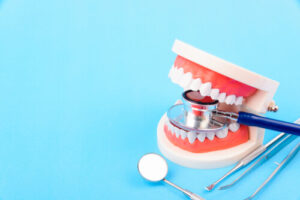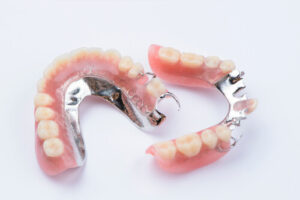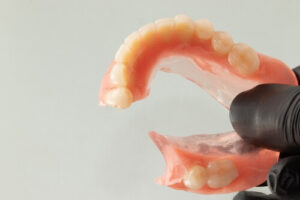Dental Flipper vs Partial Denture: Choosing the Right Option for You
When considering options for replacing missing teeth, choosing between a dental flipper and a partial denture is critical. Both offer unique benefits and can significantly impact your daily life and dental health. In this discussion on dental flipper vs partial denture, we delve into each option’s specifics, features, comfort levels, durability, and cost to help you make an informed decision.
Whether you seek a temporary solution or a long-term fix to replace missing teeth, understanding these alternatives is key to choosing the best fit for your lifestyle and dental needs. Stay tuned as we explore the pros and cons, guiding you through a detailed comparison that ensures you can confidently select the right dental solution.
Dental Flipper vs Partial Denture Uses

When facing difficulties replacing missing front teeth, two popular options are dental flippers and partial dentures. Each used for a unique purpose and suits different dental needs. Understanding the uses and differences between these two can help you make an informed decision about which is best suited for your situation.
Dental Flippers
Often used as temporary tooth replacements, dental flippers are lightweight, removable devices made to fill gaps left by one or two missing teeth. They are typically made from an acrylic material that resembles gums and holds the replacement tooth or teeth.
Flippers are primarily used due to their quick fabrication times and cost-effectiveness. They serve as an interim solution while awaiting more permanent treatments like dental implants.
Partial Dentures
Unlike flippers, partial dentures are a long-term solution to replace several missing teeth. They are crafted from a gum-colored plastic base and sometimes include a metal framework that supports existing teeth within the structure.
Partial dentures fill the spaces left by lost teeth and turn aside other teeth from changing position. They are designed to blend in with remaining natural teeth and can be detached for cleaning or sleeping.
Comparing Cost and Affordability Between Flippers and Partial Dentures
When comparing the cost and affordability of dental flippers and partial dentures, it’s important to consider both the immediate financial impact and the long-term value each option offers.
Dental Flippers: Known for their cost-effectiveness, they are generally the least expensive. They are designed as a temporary solution to tooth loss, primarily used while waiting for a more permanent tooth replacement like dental implants. The lower cost of flippers makes them accessible for patients needing a quick fix to aesthetic concerns after tooth loss without a substantial initial investment.
Partial Dentures: Conversely, partial dentures represent a more permanent solution with significant initial investment compared to flippers. They are intended as a long-term solution, designed to be more durable and functional over the years. The higher cost reflects the materials used, the customization for the fit, and the potential inclusion of a metal framework to provide additional support to the remaining natural teeth.
Cost Analysis
Initial Cost: Flippers are less expensive upfront, making them an attractive option for those looking for a temporary or immediate solution. While more costly initially, partial dentures offer greater durability and long-term stability.
Maintenance Costs: The ongoing costs must also be considered. Flippers, while cheaper, may require more frequent replacements or repairs due to their less durable nature. Though more robust, partial dentures can still incur costs related to adjustments, repairs, and maintenance over time.
Insurance and Coverage: Dental insurance may cover part of the cost of both options, but coverage varies by plan. Patients should consult their insurance to understand how much the cost might be offset.
Partial Dentures and Dental Flippers: Pros & Cons

When considering solutions for missing teeth, partial dentures and dental flippers offer unique advantages and disadvantages. Here’s a breakdown of a few teeth and the pros and cons of each option to help individuals make a well-informed decision based on their specific dental needs.
Partial Dentures
Pros
- Durability: Made from high-quality materials, partial dentures are designed to last many years with proper care.
- Aesthetic and Functional Benefits: They not only fill gaps left by missing teeth but also provide support to prevent other teeth from shifting, maintaining the overall structure of your mouth.
- Improved Chewing and Speaking: By replacing multiple teeth, partial dentures enhance the ability to chew and speak more clearly than without them.
Cons
- Adjustment Period: Some people find it challenging to get used to wearing partial dentures; they can feel bulky or cause initial discomfort.
- Maintenance: Requires regular cleaning and occasional adjustments or repairs.
- Potential for Gum and Bone Deterioration: Long-term use can sometimes lead to bone and soft tissue shrinkage, necessitating adjustments over time.
Dental Flippers
Pros
- Cost-Effectiveness: Flippers are among the most affordable tooth replacement options available.
- Immediate Solution: They can be made quickly, often on the same day or soon after teeth are extracted, making them a great temporary solution until a more permanent option is viable.
- Lightweight and Comfortable: Dental flippers are relatively comfortable due to their lightweight nature.
Cons
- Less Durable: Flippers are not meant for long-term use; they are made from less durable materials and are more prone to damage and wear.
- Aesthetic Limitations: While they provide a cosmetic fix, flippers may offer a different natural look than partial dentures.
- Risk of Further Oral Health Issues: Wearing too long can lead to issues such as poor fit and gum irritation.
Making the Right Choice: Factors to Consider

When deciding between dental flippers and partial dentures, several key factors should be considered to ensure the dental implant aligns with your needs, lifestyle, and budget. Here’s a comprehensive guide to help you navigate these considerations and make an informed decision.
Factors to Consider When Choosing Between Dental Flippers and Partial Dentures:
Duration of Use
- Temporary vs. Permanent Solution: Determine whether you need a short-term solution while waiting for more permanent dental work, such as dental implants, or seeking a long-term replacement for missing teeth.
Comfort and Aesthetics
- Fit and Comfort Level: Decide which option feels more comfortable in your mouth. Flippers are lighter and sometimes more comfortable, whereas partial dentures are bulkier but offer better stability.
- Appearance: Consider how important the aesthetic aspect is to you. Partial dentures generally offer a more natural and aesthetically pleasing appearance than flippers.
Oral Health Impact
- Gum and Bone Health: Discuss with your dentist how each option might impact oral health. If not managed properly, prolonged use of dental flippers could potentially lead to gum disease or deterioration.
- Existing Dental Health: Evaluate the health of your remaining teeth and gums to determine which option would provide better support and protection.
Lifestyle Considerations
- Eating and Speaking Comfort: Consider how each option affects your ability to eat and speak. Partial dentures are typically better for chewing efficiency and clarity of speech.
- Maintenance and Care: Assess your willingness and ability to maintain either option. Flippers require careful handling to avoid damage, while partial dentures need regular cleaning and occasional adjustments.
Durability and Longevity
- Expected Lifespan: Consider how long you plan to use the dental appliance. Flippers, while cheaper, may not last as long as partial dentures and might require frequent replacements.
References
Flipper Tooth (Partial Denture) Benefits, Drawbacks, Costs, and Care
https://www.healthline.com/health/what-you-need-to-know-about-maintaining-a-partial-denture-also-known-as-a-flipper-tooth
Flipper Tooth: Pros & Cons of a Partial Denture
https://www.byte.com/community/resources/article/pros-cons-flipper-tooth
Flipper Tooth: What You Should Know About Them
https://www.dentureliving.com/en-us/advice-tips/types-of-dentures/partials/what-is-a-flipper-tooth
Immediate fixed partial denture after tooth extraction in patients with systemic diseases: A clinical report
https://www.ncbi.nlm.nih.gov/pmc/articles/PMC5179491/
A Technique to Fabricate a Customized Interim Removable Partial Denture
https://www.researchgate.net/publication/26763789_A_Technique_to_Fabricate_a_Customized_Interim_Removable_Partial_Denture

